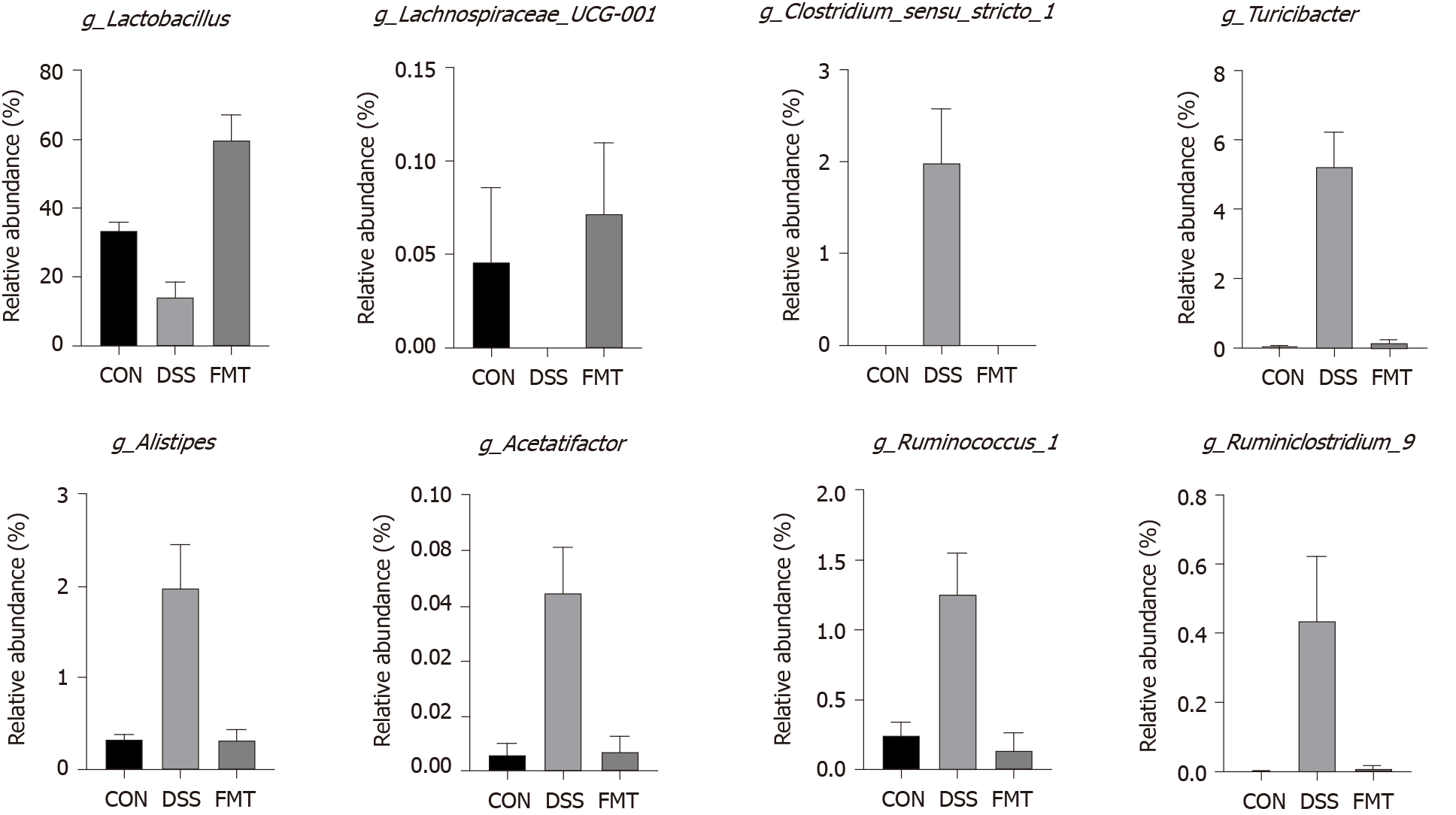Copyright
©The Author(s) 2021.
World J Gastroenterol. Jun 7, 2021; 27(21): 2834-2849
Published online Jun 7, 2021. doi: 10.3748/wjg.v27.i21.2834
Published online Jun 7, 2021. doi: 10.3748/wjg.v27.i21.2834
Figure 3 Fecal microbiota transplantation significantly regulated the relative abundance of eight genera compared with dextran sodium sulphate group.
Lactobacillus [cP < 0.001, one-way analysis of variance (ANOVA)]; Lachnospiraceae_UCG-001 (aP < 0.05, one-way ANOVA); Clostridium_sensu_stricto_1 (cP = 0.001, one-way ANOVA); Turicibacter (cP < 0.001, one-way ANOVA); Alistipes (cP = 0.001, one-way ANOVA); Acetatifactor (cP = 0.001, one-way ANOVA); Ruminococcus_1 (bP < 0.01, one-way ANOVA); Ruminiclostridium_6 (aP < 0.05, one-way ANOVA). CON: Control; DSS: Dextran sodium sulphate; FMT: Fecal microbiota transplantation.
- Citation: Wen X, Wang HG, Zhang MN, Zhang MH, Wang H, Yang XZ. Fecal microbiota transplantation ameliorates experimental colitis via gut microbiota and T-cell modulation. World J Gastroenterol 2021; 27(21): 2834-2849
- URL: https://www.wjgnet.com/1007-9327/full/v27/i21/2834.htm
- DOI: https://dx.doi.org/10.3748/wjg.v27.i21.2834









